Explore Space with Fun Printable Worksheets for Kids Aged 3-4 - Answer Keys Included!
6 filtered results
-
From - To
Unleash your little astronaut's imagination with our captivating Space worksheets designed specifically for Ages 3-4! Each worksheet is a galaxy of fun, filled with engaging activities that introduce the wonders of the cosmos in a way that's just right for young explorers. From coloring pages featuring friendly aliens to simple puzzles that teach about the planets, our Space worksheets blend learning with play, nurturing curiosity about the universe. Perfect for preschoolers, these worksheets are an excellent resource for parents and educators looking to spark an early interest in science and exploration. Embark on an interstellar adventure with our Space worksheets for Ages 3-4 today!


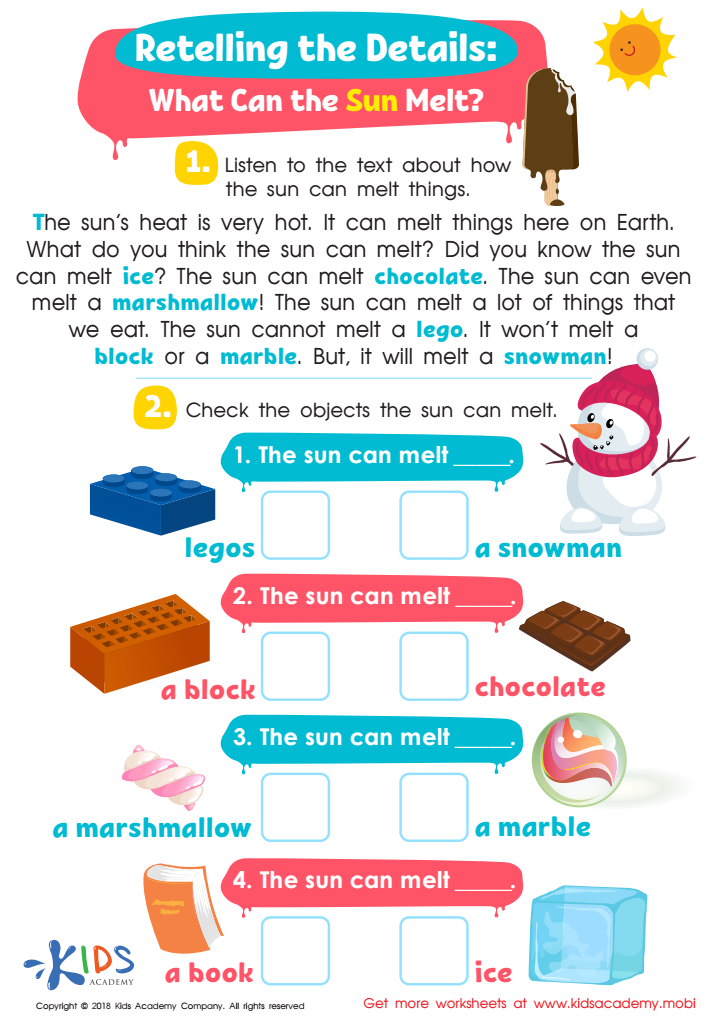

Retelling the Details: What Can the Sun Melt? Worksheet
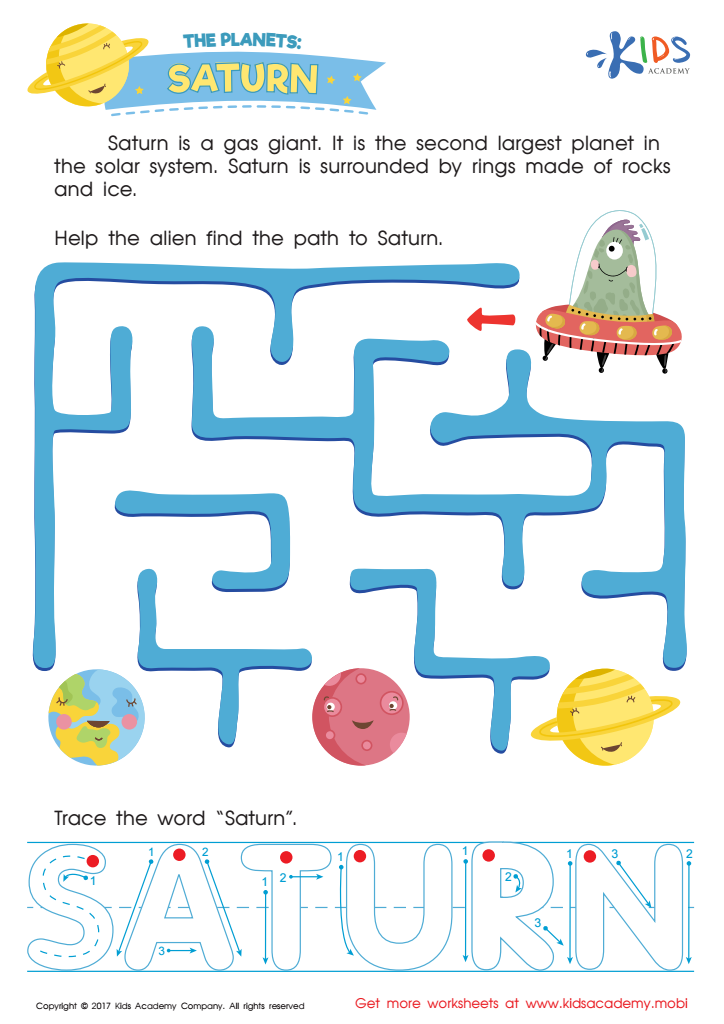

The Planets: Saturn Printable
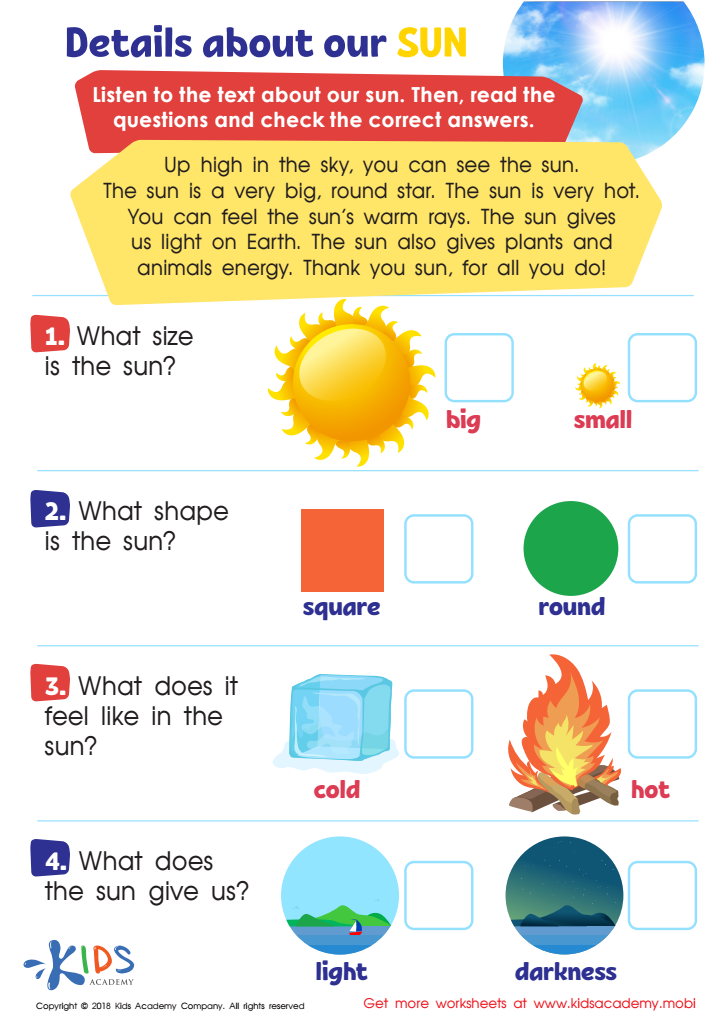

Details About Our Sun Worksheet
Worksheets on Space for Ages 3-4 play a pivotal role in introducing young learners to the vast and fascinating universe beyond our planet. At this tender age, children are naturally curious, and what better way to harness this curiosity than through engaging and colorful space-themed worksheets? These carefully crafted educational tools are not just about learning the names of planets or identifying celestial bodies; they are gateways to sparking imagination, inspiring a sense of wonder, and laying the foundation for a lifelong interest in science.
Space worksheets for Ages 3-4 are designed with the young mind in mind, incorporating playful elements that teach through fun. Through matching shapes of planets, coloring astronauts, or connecting dots to reveal a spaceship, children develop fine motor skills, recognize patterns, and begin to grasp basic concepts of space and astronomy. Moreover, introducing space concepts at such a young age helps in building vocabulary, enhancing memory, and fostering an early appreciation for the natural world and its mysteries.
In essence, Space worksheets for Ages 3-4 are invaluable tools that do more than educate; they enchant and empower. They are the first steps in a journey of discovery that can eventually lead curious minds to explore further, ask questions, and maybe one day, contribute to our understanding of the cosmos.
 Assign to My Students
Assign to My Students
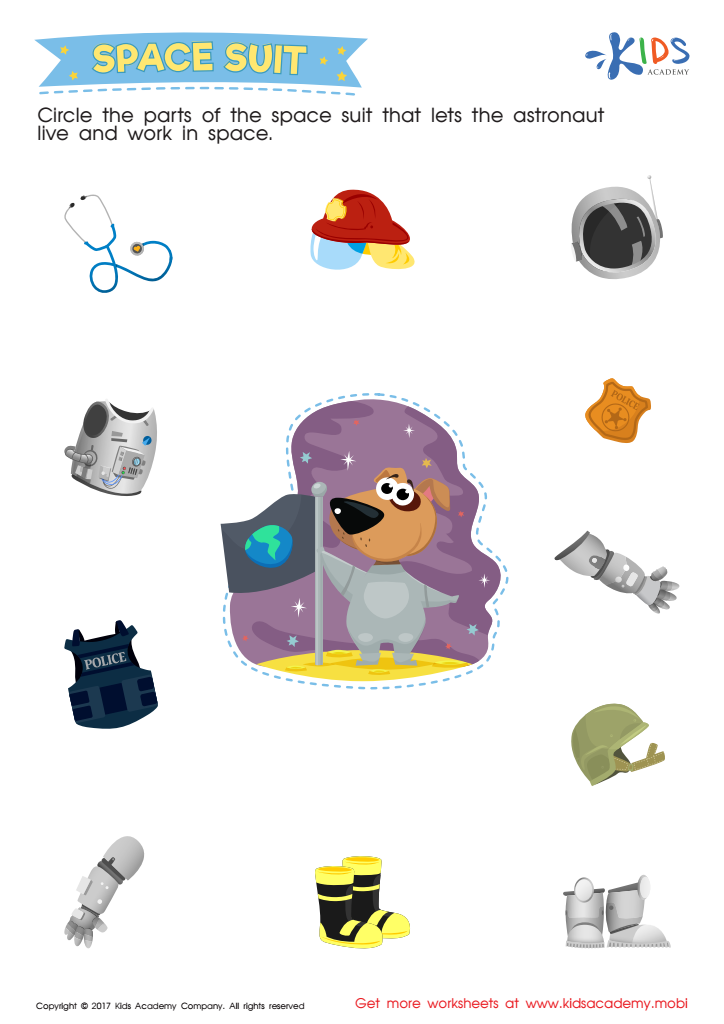
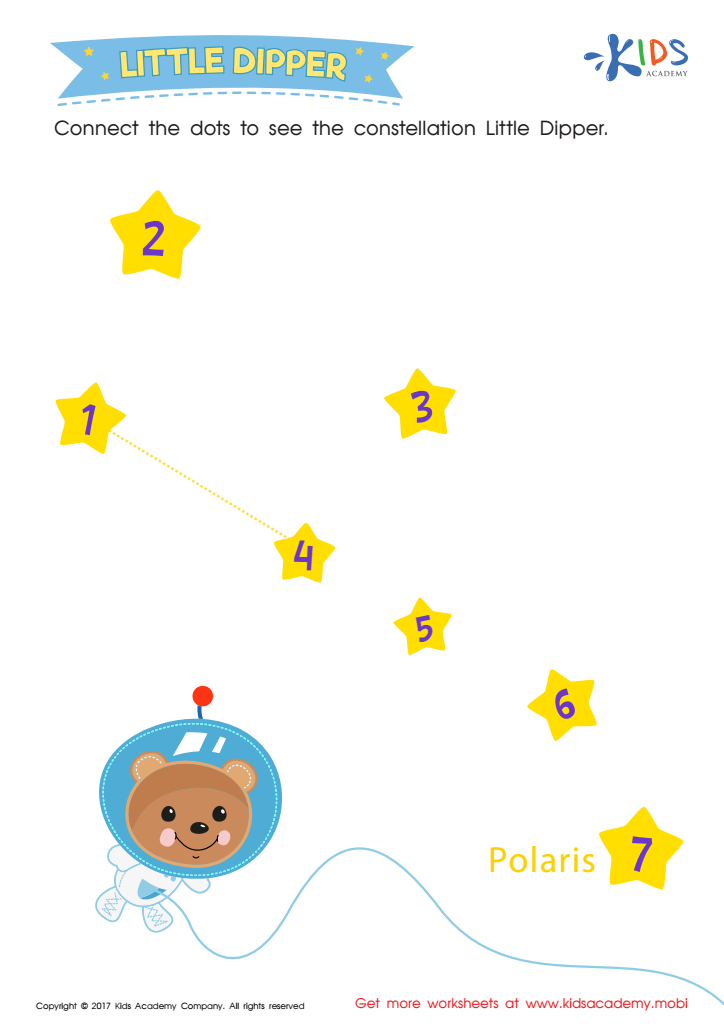



.jpg)











